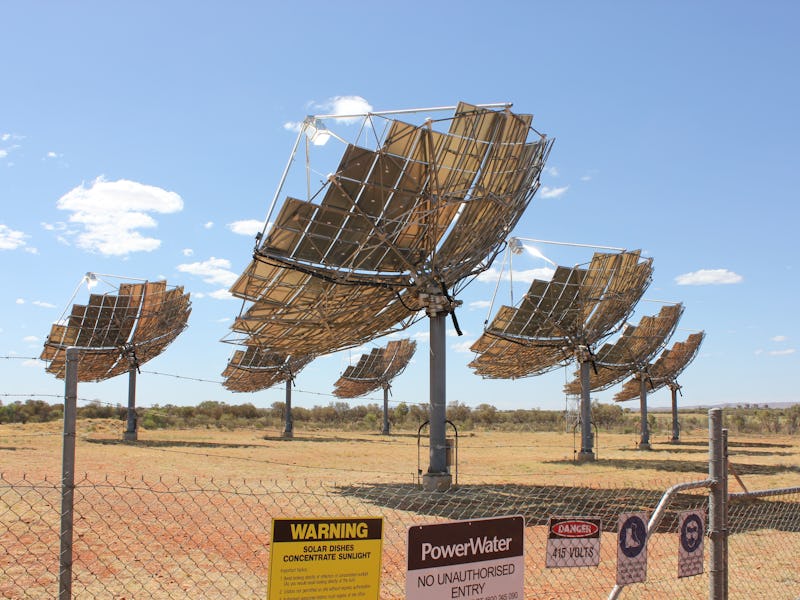International Solar Alliance is Tropical Countries' Big Bet on Sunny Future
Here comes the sun.

The clue is in the name: A problem like global warming requires a global response. That includes the push for clean, renewable energy, which is why India has led the charge to form an alliance of more than 120 countries dedicated to ensuring the world’s solar future.
The International Solar Alliance was founded in 2015, but it was only Wednesday that it gained official recognition as a treaty-based legal entity. That will lend it the status it needs to pursue its goals, which center on putting together a trillion dollars in investments by 2030 to build solar infrastructure in remote and rural communities in the tropics.
“It will be a major international body headquartered in India,” R.K. Singh, India’s New & Renewable Energy Minister, said in a statement. “As many as 45 countries had already signed the ISA treaty and 15 have ratified it [until] November 30, 2017, and many more are set to join”.
Indian Prime Minister Narendra Modi has been the main driving force behind the alliance, which is also seen as a way for India to strengthen its ties with African governments, as these sunny regions are major targets for solar development. He and former French President Francois Hollande laid out the vision for the ISA back in 2015 with the Paris Declaration.
“United by a shared vision to bring clean, affordable and renewable energy with the reach of all, we affirm our intention to join the international solar alliance as founding members to ensure the promotion of green, clean and sustainable energy,” the Declaration reads.
The group was originally conceived to be a collaborative effort between 121 countries, primarily located in sunny regions, to allow them to make the most of their resources to produce large amounts of clean energy.
The pooling of resources is crucial for countries that individually lack the resources of wealthier nations in more temperate regions. Working in unison, the group can reduce the global cost of solar energy, help countries with limited infrastructure set up their own solar energy plants, and realize its goal of raising that trillion dollars in investment money in the solar sector by 2030.
With this new legal authority granted to the ISA, the India-based organization is set to make a huge impact in the way developing countries shape their energy policies in hopes that solar energy eclipses fossil fuels.
This island is now completely solar powered. Check out this video to find out more.